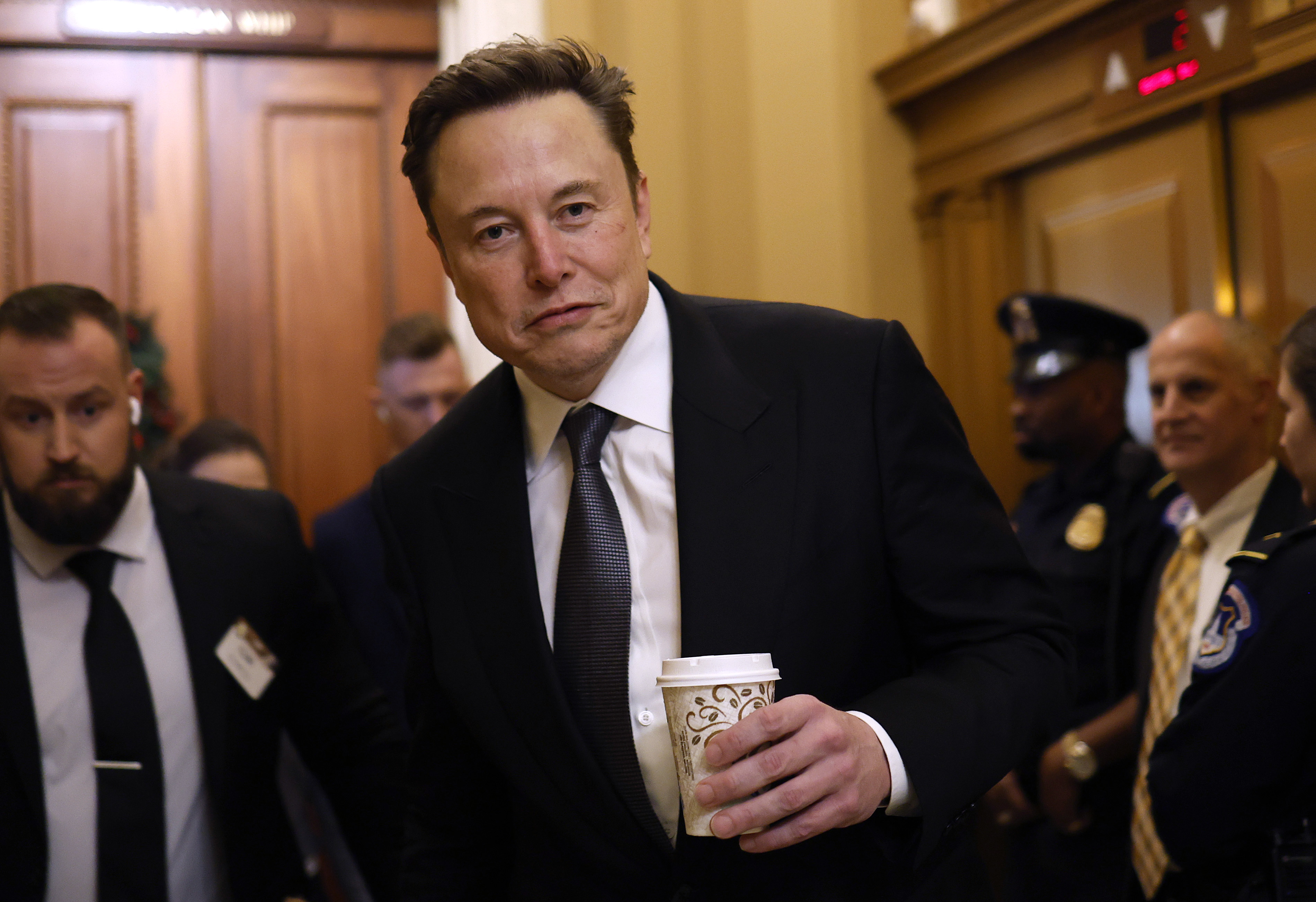Elon Musk has backtracked on his earlier goal of cutting $2 trillion from the federal budget.
In a live interview on X, formerly Twitter, with Stagwell CEO Mark Penn on Wednesday, Musk said slashing $2 trillion from the budget would be “the best-case outcome,” but he thinks there is a “good shot” of cutting half that amount.
“We’ll try for $2 trillion. I think that’s like the best-case outcome,” he said. “I think if we try for $2 trillion, we’ve got a good shot at getting one.”
Newsweek reached out to President-elect Donald Trump‘s transition team for comment via email.
Why It Matters
Musk, the world’s richest man, has been tapped by Trump along with Vivek Ramaswamy to lead a so-called Department of Government Efficiency (DOGE) tasked with recommending ways to slash spending and make the federal government more efficient.
Musk said in October that he could cut the federal budget by “at least $2 trillion”—which amounts to nearly a third of total annual government spending. However, budget experts dismissed that figure as unrealistic.
Anna Moneymaker/Getty Images
What To Know
In the interview, Musk said it would still be “an epic outcome” if the federal budget is cut by $1 trillion.
“If we can get, drop the budget deficit from $2 trillion to $1 trillion, and kind of free up the economy to, you know, have additional growth such that the output of goods and services keeps pace with the increase in the money supply, then there will be no inflation,” he said. “So that, I think, would be an epic outcome.”
Penn asked if Musk had identified cuts that he thinks will be successful.
Musk did not mention anything specific but said the government is a “very target-rich environment for saving money.”
He added: “It’s like being in a room full of targets, like you could close your eyes and you can’t miss.”
What People Are Saying
Democratic fundraiser Jon Cooper, on X: “Gosh, what a f****** surprise. It’s always a con with these guys.”
Economist James Meadway, on X: “Lol. Walking back already. $2tr cuts aren’t going to happen – not even close. Prediction: Federal govt will be bigger, as share of GDP, at end of Trump second term than start.”
Philip Wallach, a senior fellow at the American Enterprise Institute, previously told Newsweek: “There’s a lot of us out here who are skeptical that they’re really going to be able to come in out of nowhere and figure out all these savings that nobody else has been able to figure out all these years.”
What’s Next
Trump will return to the White House for a second term on January 20. What cuts to the budget Musk and Ramaswamy’s DOGE ultimately recommend remains to be seen.




